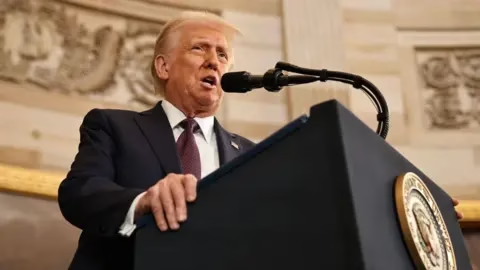
Trumps Executive Order on Birthright Citizenship: A Controversial
The Controversial Truth: Trump’s Executive Order on Birthright Citizenship
Trump’s executive order on birthright citizenship has sparked heated debates and widespread attention. The policy aims to end the automatic granting of U.S. citizenship to children born on American soil, a practice protected by the Fourteenth Amendment. This controversial move faces strong public opposition and significant legal challenges.
Public Sentiment on Trump’s Executive Order on Birthright Citizenship
Polls reveal that most Americans disagree with Trump’s executive order on birthright citizenship. A recent AP-NORC poll shows only 30% of Americans support amending the Constitution to eliminate birthright citizenship for children born to undocumented immigrants. Notably, this issue divides political lines: about 50% of Republicans back the change, while just 10% of Democrats do. Additionally, an Ipsos poll highlights that 55% of Americans oppose the directive, reflecting nationwide resistance.
Legal Challenges to Trump’s Executive Order on Birthright Citizenship
The policy is already under fire, with 22 Democratic-led states filing lawsuits arguing it violates the Fourteenth Amendment. Legal experts believe changing this long-standing principle would require substantial legislative support, presenting a complex legal battle for Trump’s administration.
Broader Consequences of Trump’s Executive Order on Birthright Citizenship
This order impacts more than undocumented families; it also affects children born to legal visa holders, including students and skilled workers. Critics warn of far-reaching social and economic consequences for families contributing positively to U.S. society.
Final Thoughts
Trump’s executive order on birthright citizenship is a bold attempt to reshape U.S. immigration policy. However, with limited public support, significant legal hurdles, and potential societal consequences, its implementation remains uncertain.
Source : New York Times
